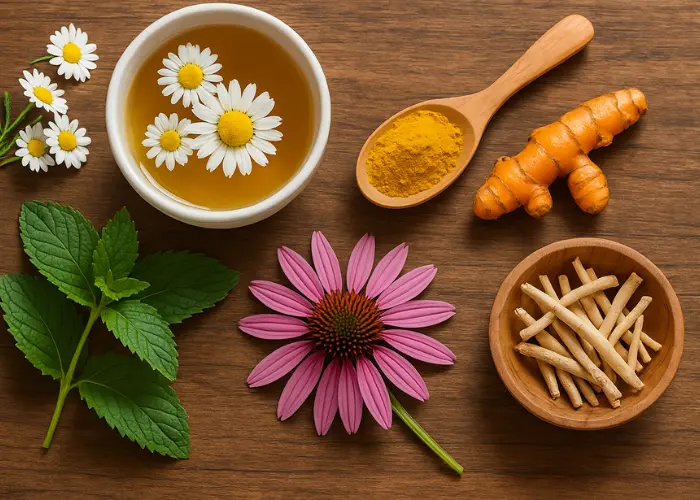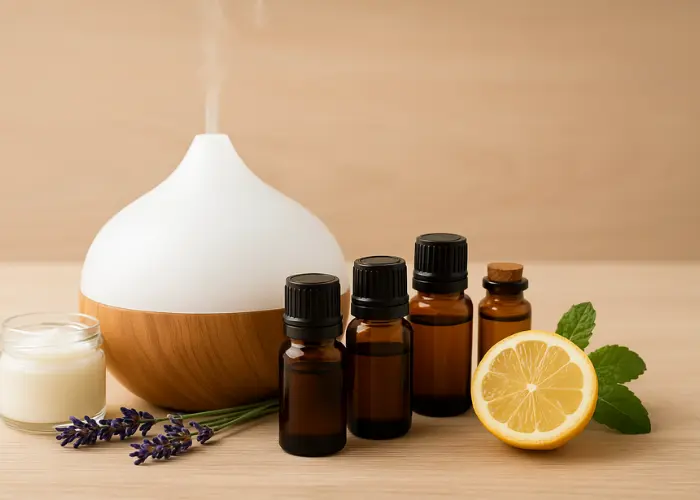Discover the power of herbal medicine with five healing herbs that support natural wellness, immunity, and stress relief.
In today’s fast-paced world, many of us are turning to natural remedies to support our overall well-being. While modern medicine has its place, there’s a growing appreciation for time-tested, plant-based solutions. Herbal medicine is one such path—an age-old tradition used by cultures around the world to help the body restore balance and promote wellness.
If you’re curious about integrating herbs into your lifestyle, this guide will introduce you to five of the most trusted healing herbs known for their gentle yet powerful effects. Let’s explore how herbal medicine can fit into your holistic wellness routine.
1. Chamomile: The Calming Classic
Chamomile is more than just a soothing tea—it’s one of the most well-known natural remedies for relaxation and sleep support. Packed with antioxidants like apigenin, chamomile may help reduce stress and promote calm, especially before bedtime.
How to use: Try a warm chamomile tea in the evening or use a chamomile-infused essential oil in your diffuser to unwind.
2. Turmeric: The Golden Anti-Inflammatory
Known for its vibrant yellow color and earthy flavor, turmeric is a powerhouse when it comes to herbal medicine. Its active compound, curcumin, has been studied for its potential anti-inflammatory and antioxidant properties.
How to use: Add turmeric to your smoothies, soups, or try a high-quality turmeric supplement like this one on Amazon that includes black pepper for better absorption.
3. Peppermint: Nature’s Digestive Helper
If you’ve ever sipped peppermint tea after a big meal, you may already be familiar with its soothing effect on digestion. Peppermint is widely used to ease occasional indigestion, bloating, and nausea.
How to use: Enjoy a cup of peppermint tea after meals or use peppermint essential oil (diluted) for a refreshing pick-me-up.
4. Echinacea: Your Immune System Ally
Echinacea is often a go-to herb during cold and flu season. It’s believed to support immune health and may shorten the duration of mild seasonal illnesses when taken at the first sign of symptoms.
How to use: Echinacea is available in teas, capsules, and tinctures. Look for standardized extracts to ensure consistent quality.
Note: While Echinacea is widely used, it’s best taken periodically rather than daily, especially for immune support.
5. Ashwagandha: The Adaptogen for Stress Support
Ashwagandha is a well-known adaptogen—a plant that helps the body adapt to stress. Used for centuries in Ayurvedic medicine, it’s believed to support energy levels, promote focus, and help the body maintain balance during stressful times.
How to use: You can find ashwagandha in capsule or powder form. It blends well into smoothies or warm drinks like golden milk.
Getting Started with Herbal Medicine Safely
While these healing herbs are generally considered safe for most people, it’s always smart to start slowly and listen to your body. If you’re pregnant, nursing, or taking medications, consult a healthcare provider before trying new herbs.
Stick with high-quality sources, read labels carefully, and avoid any product that makes exaggerated or “miracle cure” claims.
Final Thoughts: Try One Herb at a Time
Herbal medicine doesn’t have to be overwhelming. Choose one herb that fits your current wellness goals—maybe better sleep, stress relief, or digestion—and introduce it into your routine. Over time, you’ll find what works best for your body.
✨ Found this helpful? Share it with a friend who loves natural wellness and drop a comment below—Which healing herb are you most excited to try?



